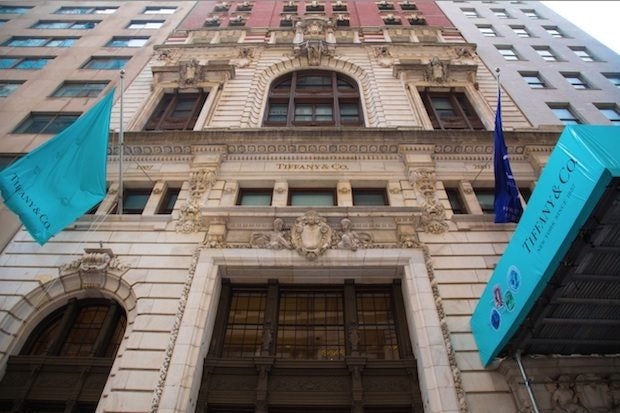
U.S. retailers such as Tiffany & Co. worry about the strong dollar's effect on foreign tourism numbers. (Shutterstock)
With the U.S. dollar stronger than it’s been in a decade, in recent months many American hoteliers, restaurateurs, brands and retailers have voiced concerns that international tourists—among them a growing influx of Chinese travelers—may be dissuaded from long-planned trips to the United States. As Mark L. Aaron, vice president of investor relations at Tiffany, put it, "The strong dollar has created headwinds for foreign tourists in the United States," adding that the brand expects more sluggish sales to tourists at its 5th Avenue store in New York.
However, fears of big-spending Chinese tourists dropping the United States for other destinations are misguided, mostly because the United States remains a top draw regardless of price. Big on American films and TV shows, tempted by massive outlet malls and luxury flagships, and enticed by the recent rollout of 10-year tourist visas, Chinese tourists continue to flock to the United States in record numbers.
Announced by President Obama during his November visit to the APEC Summit in Beijing, the reciprocal visa agreement was arguably the biggest boost yet for Chinese tourism to the United States. Shortly after the announcement, Ctrip.com released data indicating that applications for U.S. visas leapt 50 percent. Easier and longer tourist visas will likely be the key factor influencing more independent travel to the United States—a trend that can’t come soon enough for retailers that have long catered to government officials on organized trips (a demographic that has been hit in recent years by the ongoing anti-corruption campaign).
Another reason the United States has little to fear from the stronger dollar is because it’s not just Chinese tourist-shoppers visiting and spending in the United States; it’s students, real estate buyers, and investors. Currently, over a quarter-million Chinese international students reside in the United States, with no sign of a slowdown in that growing number. Meanwhile, Chinese inbound investment in the United States surpassed the $10 billion mark for the second year in a row last year, with $12 billion worth of deals completed in 2014. According to the Rhodium Group, we should see the same strong investment in 2015, with more than $3 billion in deals currently pending this year. Although the dollar may fluctuate, what remains true is that the United States is—and will remain—a top destination for affluent Chinese to buy second homes, educate their children, invest, and—yes—shop.